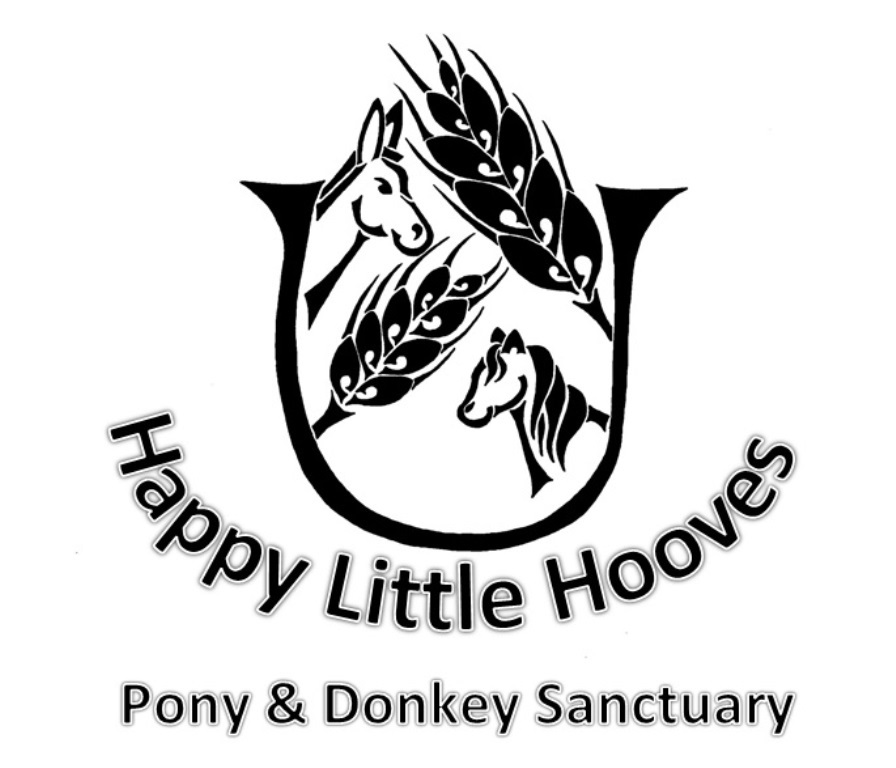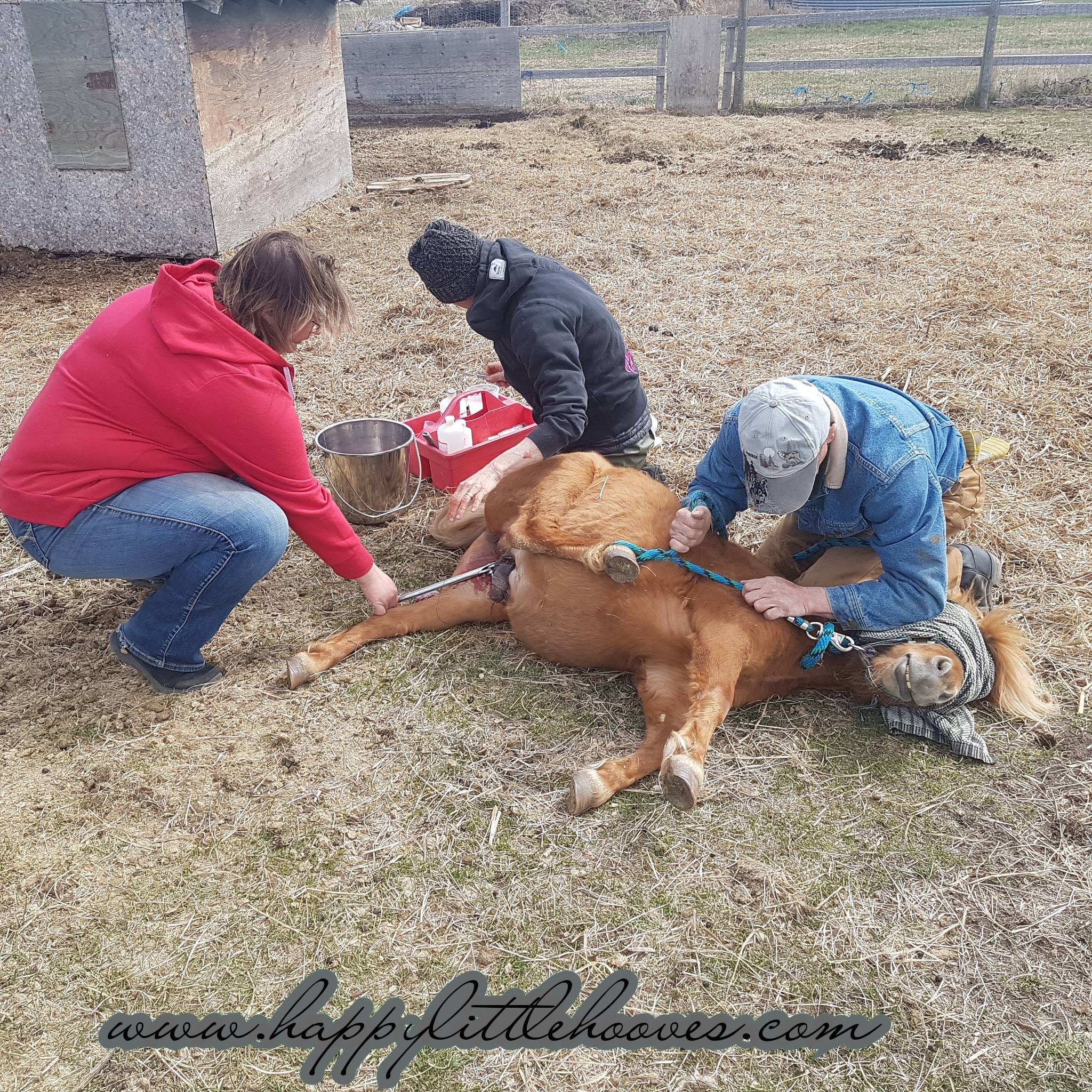What is hairy, sometimes white, bossy and full of fun? It’s Gus Gus!
Gus is one of the silliest characters at the Sanctuary, and we have known him for quite a while. Gus Gus was one of Rhonda’s hoof trimming clients, and has bit her butt many times while she was trimming his hooves. Gus was born a brown and white pinto pony and found a very loving home with his mom where he bossed around her big horses and entertained everyone. He quickly greyed out and is now mostly white. Gussy even learned how to drive and was a very quick study at it.
Unfortunately in early summer of 2019, Gus developed a sensitivity to sugar in the grass, which is very common in ponies. His mom separated him from the other horses so he could be on hay only, but Gus was lonely and unhappy on the dry lot. So she contacted the sanctuary and asked us if he could come live here where he would receive regular hoof care and be on a dry lot while still having friends. Since Gus Gus is one of our favourite clients, we couldn’t say no!
As soon as Gus arrived, he upset the apple cart of life at the sanctuary. He has such a big personality that everyone noticed him right away! He loves to boss the other ponies around and loves to play. We were able to get his feet under control again and he will be living in the dry lot with Echo, Willy and Peanut during the summer. Gus spends most of his time running around and getting into trouble with Frosty and Derby, his partners in crime. Together the three of them are known affectionately as the sanctuary mafia because they are always ganging up on the other ponies.
Gussy is one of the first ponies to the fence to look for attention and will be going with us to the Red Barn this summer to see kids and represent the sanctuary. He is rarely clean, and loves to roll in the dirt. He also loves carrots but won’t touch apples.
And he still tries to bite Rhonda in the butt every time she trims his feet.

































